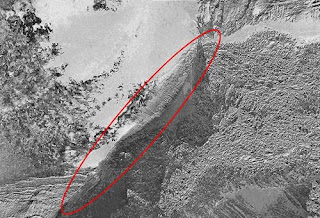WHEN we fall under the spell of a charismatic figure, areas of the brain responsible for scepticism and vigilance become less active. That's the finding of a study which looked at people's response to prayers spoken by someone purportedly possessing divine healing powers.
To identify the brain processes underlying the influence of charismatic individuals, Uffe Schjødt of Aarhus University in Denmark and colleagues turned to Pentecostal Christians, who believe that some people have divinely inspired powers of healing, wisdom and prophecy.
Using functional magnetic resonance imaging (fMRI), Schjødt and his colleagues scanned the brains of 20 Pentecostalists and 20 non-believers while playing them recorded prayers. The volunteers were told that six of the prayers were read by a non-Christian, six by an ordinary Christian and six by a healer. In fact, all were read by ordinary Christians.
Only in the devout volunteers did the brain activity monitored by the researchers change in response to the prayers. Parts of the prefrontal and anterior cingulate cortices, which play key roles in vigilance and scepticism when judging the truth and importance of what people say, were deactivated when the subjects listened to a supposed healer. Activity diminished to a lesser extent when the speaker was supposedly a normal Christian (Social Cognitive and Affective Neuroscience, DOI: 10.1093/scan/nsq023).
Schjødt says that this explains why certain individuals can gain influence over others, and concludes that their ability to do so depends heavily on preconceived notions of their authority and trustworthiness.
It's not clear whether the results extend beyond religious leaders, but Schjødt speculates that brain regions may be deactivated in a similar way in response to doctors, parents and politicians.
(I'm living proof of that last bit. Evidently my entire brain shuts down whenever I hear a Sarah Palin speech.)
Which segues nicely into this:
A group of Chinese and Turkish evangelical explorers said on Monday they believe they may have found Noah's Ark - 4000m up a mountain in Turkey.
The team say they recovered wooden specimens from a structure on Mount Ararat in eastern Turkey that carbon dating proved was 4800 years old, around the same time the ark is said to have been afloat.
"It's not 100 per cent that it is Noah's Ark but we think it is 99.9 per cent that this is it," said Yeung Wing-cheung, a Hong Kong documentary filmmaker and member of the 15-strong team from Noah's Ark Ministries International.
The structure had several compartments, some with wooden beams, which were believed to house animals, he said.
The group of evangelical archaeologists ruled out an established human settlement on the grounds that one had never been found above 3500m in the vicinity, Yeung said.
Local Turkish officials will ask the central government in Ankara to apply for UNESCO World Heritage status so the site can be protected while a major archaeological dig is conducted, Yeung added.
The biblical story says God decided to flood the earth after seeing how corrupt it had become, and told Noah to build an ark and fill it with two of every animal species.
After the flood waters receded, the Bible says, the ark came to rest on a mountain. Many believe that Mount Ararat, the highest point in the region, is where the ark and her inhabitants came aground.

Surprisingly, this looks a lot like another version of Noah's Ark found 15 miles away on a different Turkish mountain.

Maybe while God was planting dinosaur bones to confuse us & test our faith, he had multiple versions of the Ark built to...ummmmm...confuse us & test our faith.
While I have a feeling this will end badly, I'm ever hopeful that, this time, with the Ark's discovery, the elusive saddled dinosaur's existence will be proven, once & for all.


No comments:
Post a Comment